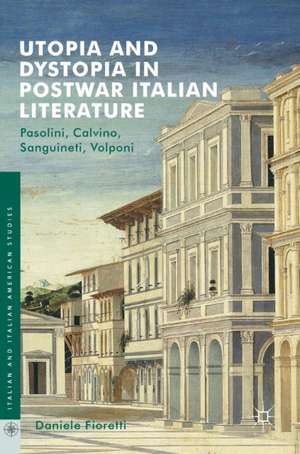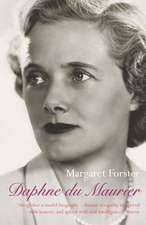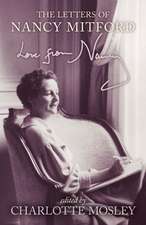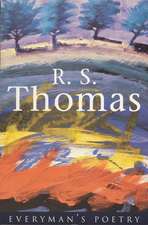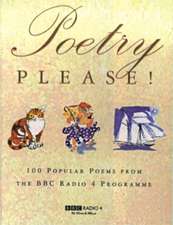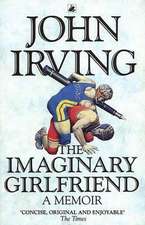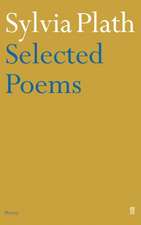Utopia and Dystopia in Postwar Italian Literature: Pasolini, Calvino, Sanguineti, Volponi: Italian and Italian American Studies
Autor Daniele Fiorettien Limba Engleză Hardback – 20 feb 2017
This book is about the presence of utopian and dystopian elements in the Italian literary landscape. It focuses on four authors that are representatives of the various positions in the Italian cultural debate: Pasolini, Calvino, Sanguineti, and Volponi. What did concepts like utopia and dystopia mean for these authors? Is it possible to separate utopia from dystopia? What is the role of science fiction in this debate? This book answers these questions, proposing an original interpretation of utopia and of the social role of literature. The book also takes into consideration four of the most influential literary journals in Italy: Officina, il menabò, il verri, and Nuovi Argomenti, that played a central role in the cultural and political debate on utopia in Italy.
| Toate formatele și edițiile | Preț | Express |
|---|---|---|
| Paperback (1) | 578.87 lei 6-8 săpt. | |
| Springer International Publishing – 13 iul 2018 | 578.87 lei 6-8 săpt. | |
| Hardback (1) | 584.10 lei 6-8 săpt. | |
| Springer International Publishing – 20 feb 2017 | 584.10 lei 6-8 săpt. |
Din seria Italian and Italian American Studies
-
 Preț: 305.50 lei
Preț: 305.50 lei - 20%
 Preț: 691.01 lei
Preț: 691.01 lei - 18%
 Preț: 564.33 lei
Preț: 564.33 lei - 20%
 Preț: 629.00 lei
Preț: 629.00 lei -
 Preț: 299.96 lei
Preț: 299.96 lei - 20%
 Preț: 691.05 lei
Preț: 691.05 lei -
 Preț: 382.95 lei
Preț: 382.95 lei -
 Preț: 389.70 lei
Preț: 389.70 lei - 34%
 Preț: 464.99 lei
Preț: 464.99 lei -
 Preț: 386.57 lei
Preț: 386.57 lei -
 Preț: 383.93 lei
Preț: 383.93 lei - 28%
 Preț: 437.24 lei
Preț: 437.24 lei -
 Preț: 388.72 lei
Preț: 388.72 lei - 24%
 Preț: 460.93 lei
Preț: 460.93 lei - 15%
 Preț: 524.22 lei
Preț: 524.22 lei -
 Preț: 389.49 lei
Preț: 389.49 lei -
 Preț: 387.75 lei
Preț: 387.75 lei -
 Preț: 396.40 lei
Preț: 396.40 lei -
 Preț: 390.84 lei
Preț: 390.84 lei - 5%
 Preț: 714.83 lei
Preț: 714.83 lei -
 Preț: 384.86 lei
Preț: 384.86 lei -
 Preț: 387.75 lei
Preț: 387.75 lei -
 Preț: 389.70 lei
Preț: 389.70 lei -
 Preț: 392.60 lei
Preț: 392.60 lei -
 Preț: 387.75 lei
Preț: 387.75 lei - 30%
 Preț: 514.90 lei
Preț: 514.90 lei -
 Preț: 385.84 lei
Preț: 385.84 lei - 30%
 Preț: 510.10 lei
Preț: 510.10 lei -
 Preț: 387.75 lei
Preț: 387.75 lei - 27%
 Preț: 438.76 lei
Preț: 438.76 lei -
 Preț: 388.72 lei
Preț: 388.72 lei -
 Preț: 389.49 lei
Preț: 389.49 lei - 18%
 Preț: 733.46 lei
Preț: 733.46 lei - 24%
 Preț: 461.18 lei
Preț: 461.18 lei -
 Preț: 384.86 lei
Preț: 384.86 lei -
 Preț: 263.83 lei
Preț: 263.83 lei -
 Preț: 386.81 lei
Preț: 386.81 lei - 15%
 Preț: 638.43 lei
Preț: 638.43 lei - 15%
 Preț: 595.07 lei
Preț: 595.07 lei -
 Preț: 390.63 lei
Preț: 390.63 lei -
 Preț: 383.93 lei
Preț: 383.93 lei -
 Preț: 386.81 lei
Preț: 386.81 lei -
 Preț: 388.72 lei
Preț: 388.72 lei -
 Preț: 387.75 lei
Preț: 387.75 lei
Preț: 584.10 lei
Preț vechi: 687.18 lei
-15% Nou
Puncte Express: 876
Preț estimativ în valută:
111.77€ • 116.47$ • 92.54£
111.77€ • 116.47$ • 92.54£
Carte tipărită la comandă
Livrare economică 03-17 aprilie
Preluare comenzi: 021 569.72.76
Specificații
ISBN-13: 9783319465524
ISBN-10: 331946552X
Pagini: 229
Ilustrații: XI, 212 p.
Dimensiuni: 148 x 210 x 14 mm
Greutate: 0.42 kg
Ediția:1st ed. 2017
Editura: Springer International Publishing
Colecția Palgrave Macmillan
Seria Italian and Italian American Studies
Locul publicării:Cham, Switzerland
ISBN-10: 331946552X
Pagini: 229
Ilustrații: XI, 212 p.
Dimensiuni: 148 x 210 x 14 mm
Greutate: 0.42 kg
Ediția:1st ed. 2017
Editura: Springer International Publishing
Colecția Palgrave Macmillan
Seria Italian and Italian American Studies
Locul publicării:Cham, Switzerland
Cuprins
Introduction.- Chapter 1. The Theoretical Landscape.- Chapter 2. Pier Paolo Pasolini: The Contradictions of Utopia.- Chapter 3. Italo Calvino: A Reasonable Utopia.- Chapter 4. The World as a Marsh: Dystopia and Utopia in Edoardo Sanguineti.- Chapter 5. Utopia and Hybridization in Paolo Volponi.- Conclusion.- Bibliography.- Index.
Notă biografică
Daniele Fioretti teaches at Miami University, USA. He holds a Dottorato di Ricerca from the Università di Firenze and a PhD from the University of Wisconsin-Madison. He has published a collection of letters from Paolo Volponi to Pier Paolo Pasolini: Paolo Volponi, Scrivo a te come guardandomi allo specchio. Lettere a Pasolini 1954-1975 (2009). He also co-edited Il romanzo di formazione nell’Ottocento e nel Novecento (2007) with Maria Carla Papini and Teresa Spignoli. His latest book is Carte di fabbrica. La narrativa industriale in Italia 1934-1989 (2013).
Textul de pe ultima copertă
'Utopia and Dystopia is a skilful synthesis of the work of Calvino, Sanguineti, Volponi and Pasolini, cutting-edge intellectuals of the latter twentieth century. Fioretti's book fills a gap in our knowledge of the literature of commitment in Italy by connecting it to the tradition of utopian literature in Europe, a framework the author explores theoretically and practically, and applies to the texts of these very diverse authors. By virtue of his method and the elegant and streamlined nature of his prose, Fioretti succeeds in presenting this complex material in a way that is highly legible and inviting, whether to the novice reader or the expert.' - Thomas E. Peterson, Professor of Italian, University of Georgia, USA
<
This book is about the presence of utopian and dystopian elements in the Italian literary landscape. It focuses on four authors that are representatives of the various positions in the Italian cultural debate: Pasolini, Calvino, Sanguineti, and Volponi. What did concepts like utopia and dystopia mean for these authors? Is it possible to separate utopia from dystopia? What is the role of science fiction in this debate? This book answers these questions, proposing an original interpretation of utopia and of the social role of literature. The book also takes into consideration four of the most influential literary journals in Italy: Officina, il menabò, il verri, and Nuovi Argomenti, that played a central role in the cultural and political debate on utopia in Italy.
Caracteristici
Examines left-wing Italian literature during the 1960s and beyond - an area of increasing scholarly interest Considers Pasolini, Calvino, Sanguineti, and Volponi together for the first time Looks at a wide range of texts, from novels and poetry to journalism and literary essays
